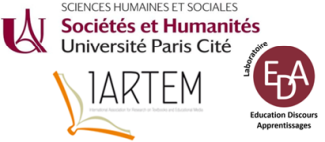Research problem/research question:
Who were the wives of Dutch colonist Michiel de Ruyter? Which Indonesian women played important roles in the struggle for independency? Small chance that high school students in Indonesia or the Netherlands can answer these questions elaboratively based on their history textbooks. In recent years, the lack of multiperspectivity, particularly in subaltern, such as (formerly) colonized and female voices, in history textbooks has become more urgent, since current-day textbooks are increasingly expected to foster critical historical and postcolonial thinking (Kropman, Drie & Boxtel, 2022). The present project therefore questioned: what reference knowledge about Dutch-Indonesian colonial histories is present in history textbooks; to what degree is it characterized by multiperspectivity; and has it evolved over time and across continents? Though postcolonial textbook research is an empirically driven field, there are few diachronic studies tracking changes in intersectional representations of ethnic and gender diversity over time, comparing Asian and European contexts (Wasserman, 2018; Niehaus, 2018).
Methodology and relevance towards the question/description of data (analysis):
To address our research questions, we examined how Indonesian and Dutch history textbooks represent agents in narratives on colonialism. We selected textbook chapters on Dutch-Indonesian colonial history, sampled from the Leibniz Institute for Educational Media textbook collections. This resulted in eight Dutch and eight Indonesian chapters published from 1950-2020, with roughly one textbook per decade per country. We performed critical discourse analysis (Baxter, 2008) on the selected chapters, focusing on representations of A. events and developments, B. colored and white wo/men in texts and images and C. comparing whether these differed across time and between Indonesian and Dutch textbooks. Moreover, we analyzed to what degree the textbooks contained markers of Asia- or Eurocentrism versus new imperialism (Nieuwenhuyse & Pires Valentim, 2018).
Results:
Results reveal representations of patriarchal Eurocentrism in both Indonesian, and to a larger degree, Dutch textbooks. Both Indonesian and Dutch textbooks featured white men in positions with political and financial power, whereas few men of color with such power appeared, but many in roles with lower status. In both cases, white women were hardly represented, while Indonesian textbooks featured women of color as independence fighters. Whereas some more recent Indonesian chapters contained Asiacentric discourse, especially older textbooks contained similar Eurocentric discourse as in Dutch textbooks. We present explanations for these findings stemming from academic historiography and broader societal movements and suggest ways forward to shape critical thinking in inclusive history education in both national contexts.
References:
- Baxter, Judith (2008) Discourse-analytic approaches to text and talk. In L. Litosseliti (Ed.) Research Methods in Linguistics 117-137. London: Bloomsbury.
- Kropman, M., Drie, J. van, Boxtel, C. van (2022). The influence of multiperspectivity in history texts on students´ representation of a historical event. European Journal of Psychology of Education, 38, 1295-1315.
- Niehaus, I. (2018). How diverse are our textbooks? Research findings in international perspective. In E. Fuchs, A. Bock (Eds.), The Palgrave handbook of textbook studies (pp. 141-155), Palgrave MacMillan US.
- Nieuwenhuyse, K. van, Pires Valentim, J. (Ed.) (2018). The colonial past in history textbooks – Historical and social psychological perspectives. Charlotte: Information Age Publishing Inc.
- Wasserman, J. (2018). Perspectives on representations of colonial pasts through textbook analysis – Not quite a decolonial turn. In K. van Nieuwenhuyse, Pires Valentim, J. (Ed.), The colonial past in history textbooks – Historical and social psychological perspectives (pp. 261-176), Charlotte: Information Age Publishing Inc.

 PDF version
PDF version
